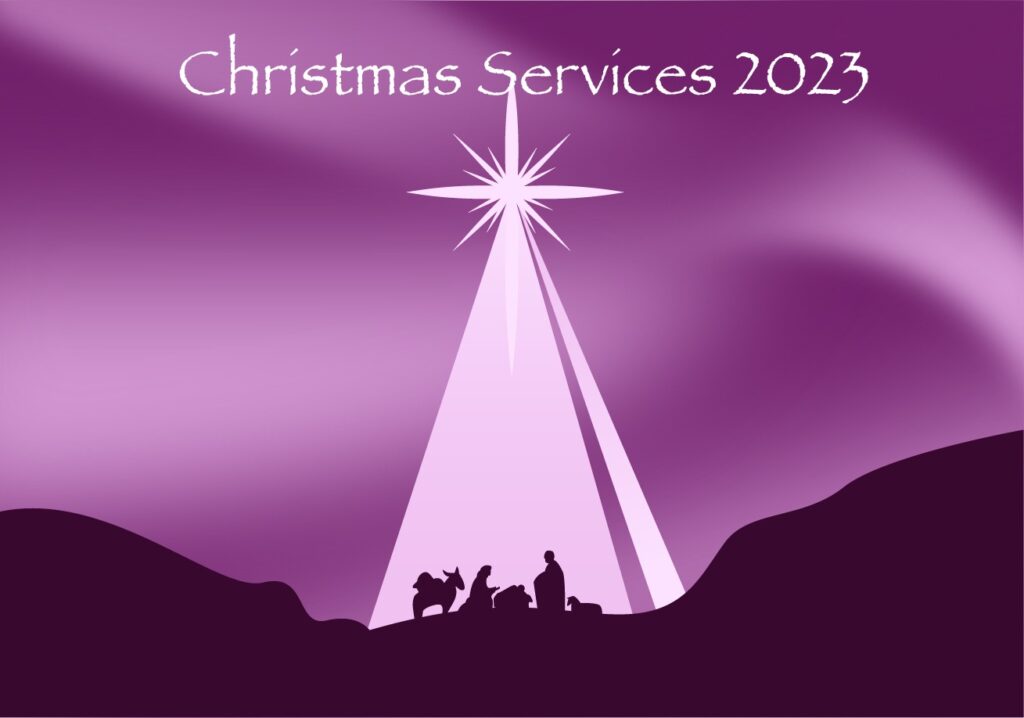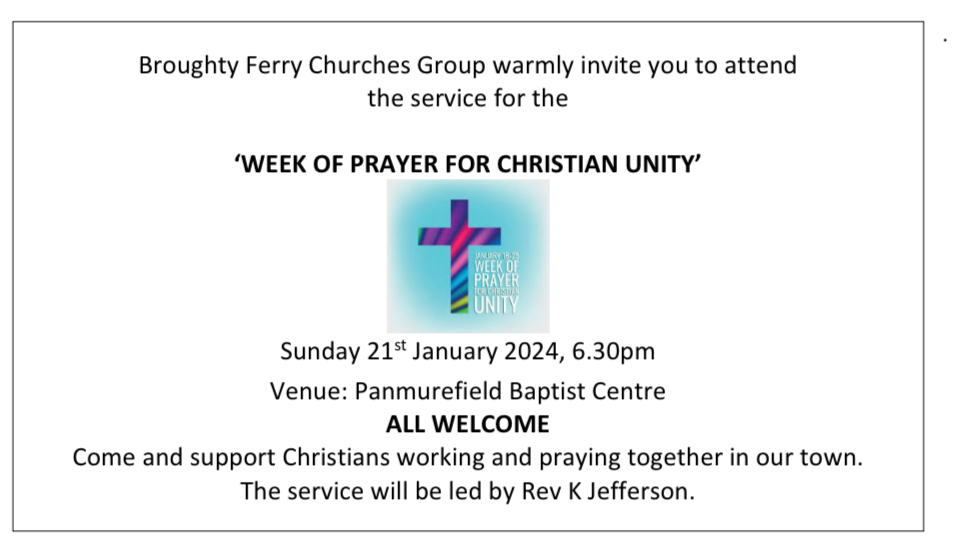
Broughty Ferry Churches Group Service – 21 January 2024 6.30pm


Sunday Service at 10.30am Panmurefield Baptist Centre.
This Sunday morning our pastor, Brian Talbot, will be preaching.
Refreshments served after the service.
Jam and Jam kids on during the service.
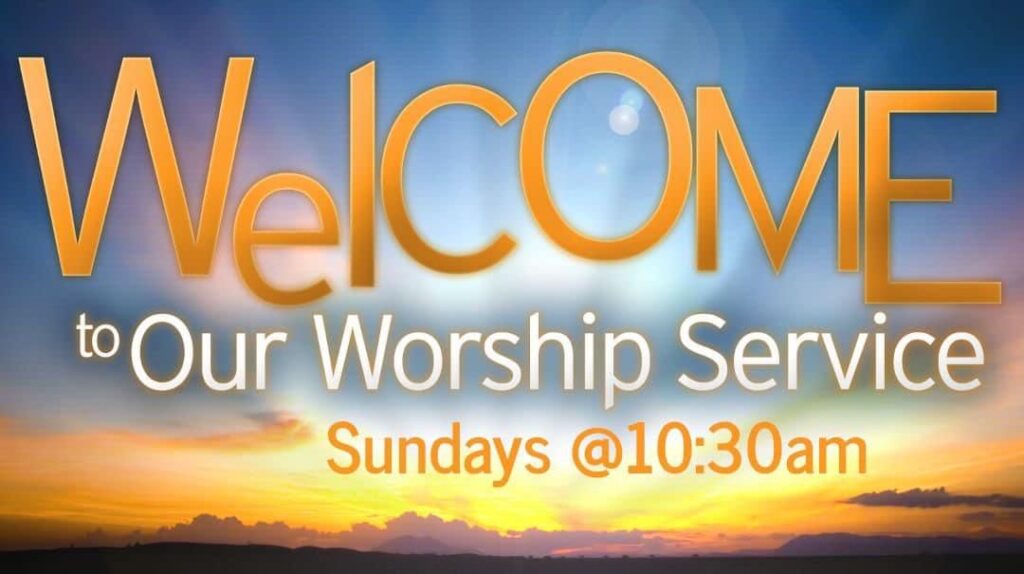
Sunday Service at 10.30am Panmurefield Baptist Centre.
You are warmly invited to join us for our Baptismal service this Sunday. Our pastor, Brian Talbot will be preaching from Mark 8 vs 31 to 38 – What does it mean to follow Jesus?
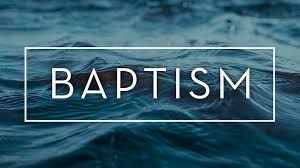
Refreshments served after the service.
Jam and Jam kids on during the service.
When we decide to follow Jesus through baptism, there is no turning back. Through every storm, He will be with us. A song we will sing tomorrow talks about this powerful message. Please listen to the song below:
Our bible verse for this year is from II Corinthians 9:8.
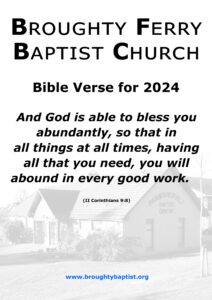
If you would like to find out more about our church please contact us.
All are welcome to attend our Sunday service at 10.30am in Panmurefield Baptist Centre, Broughty Ferry or via Zoom.
JAM is our S1-S4 youth programme which runs on a Sunday morning, during the second part of the service. On 10th December in JAM we explored the story of the wise men in Matthew 2:1-12.
The young people then made Wise men Nativity decorations using various craft materials, with a ‘wise’ Proverb glued to each one, such as: “Those who guard their lips preserve their lives, but those who speak rashly will come to ruin.” Proverbs 13:3 NIV
Earlier in the month we made Advent calendars. The theme for these sessions was ‘wisdom and generosity’. We discussed topics such as “think of one way you could be generous to someone this Christmas with your time, talent, or treasure?”
Christian speaker Cheryl Nembhard says, “Generosity is a reflection of the heart if God. In a world where we have become isolated and divided, the act of generosity can transform lives, break barriers and connect us in deep ways during the Advent season.“
You are very welcome to join us for our Christmas services:
Christmas Eve 10.30am and 6.30pm
Christmas Day 10.30am
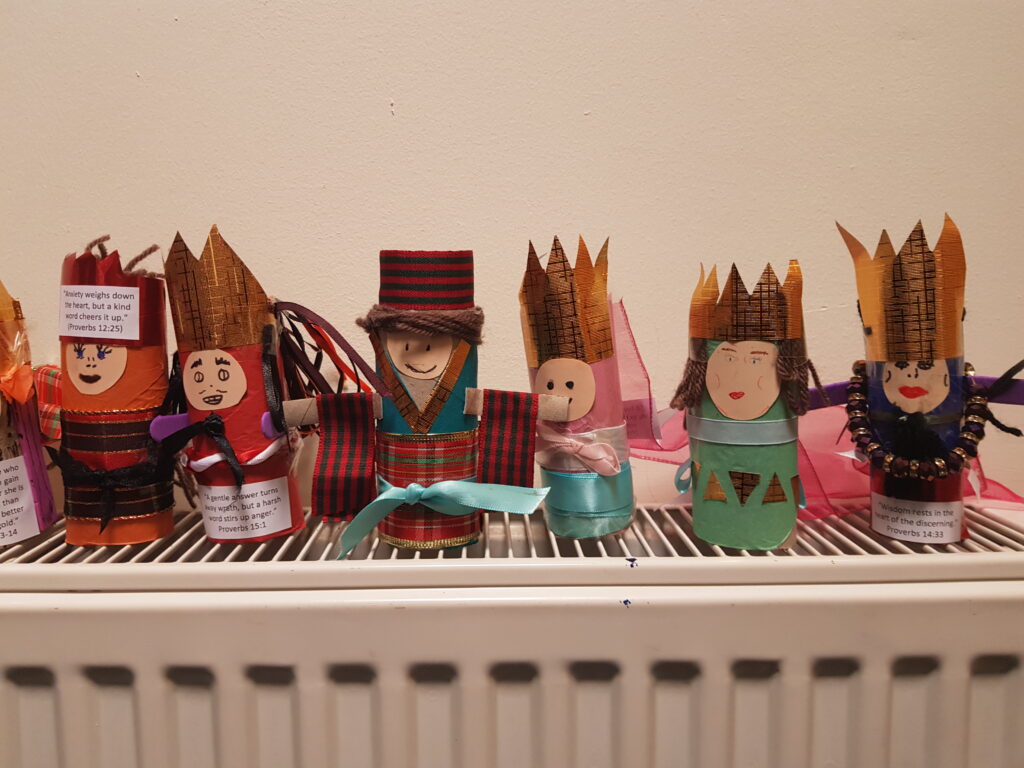
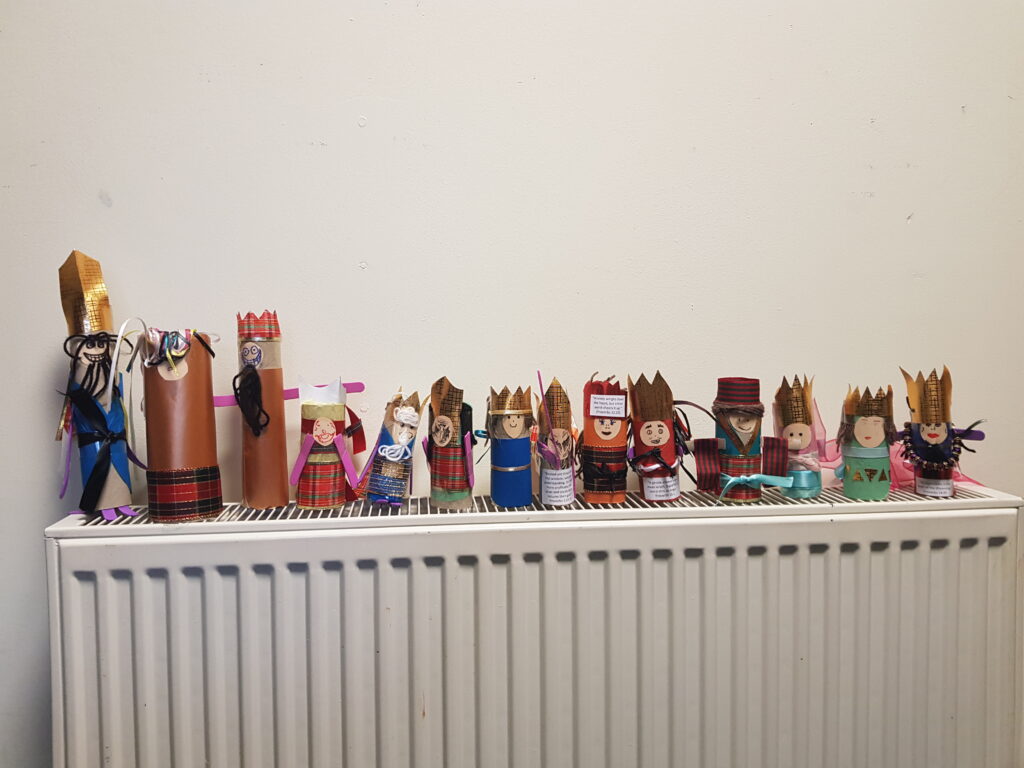
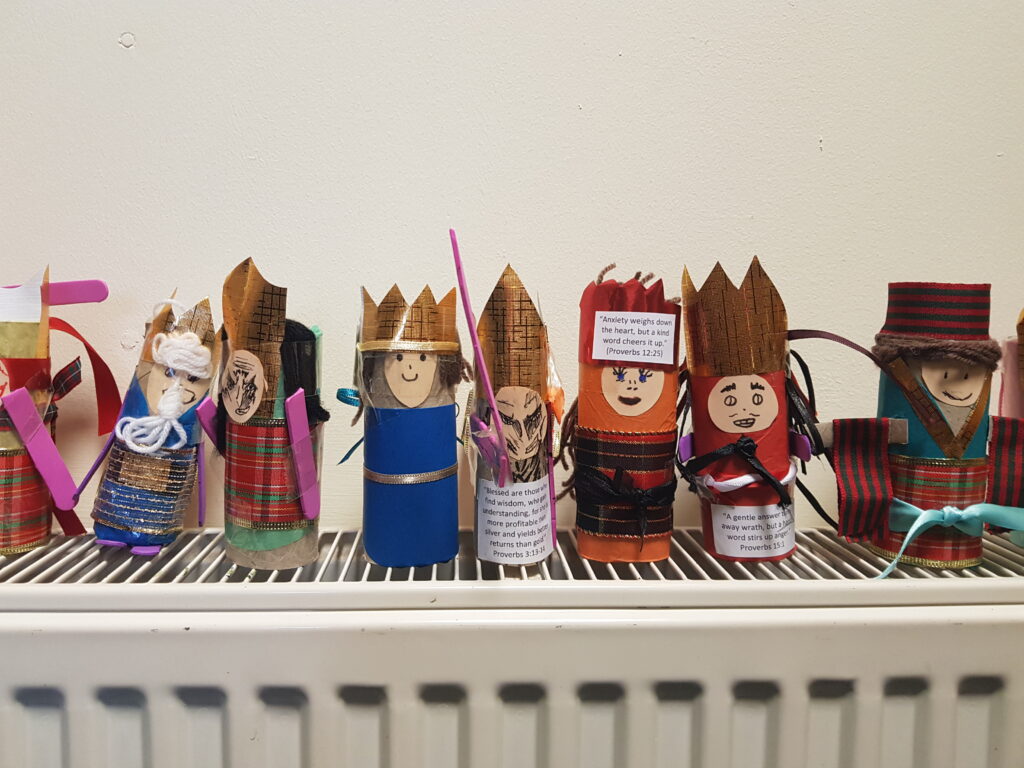
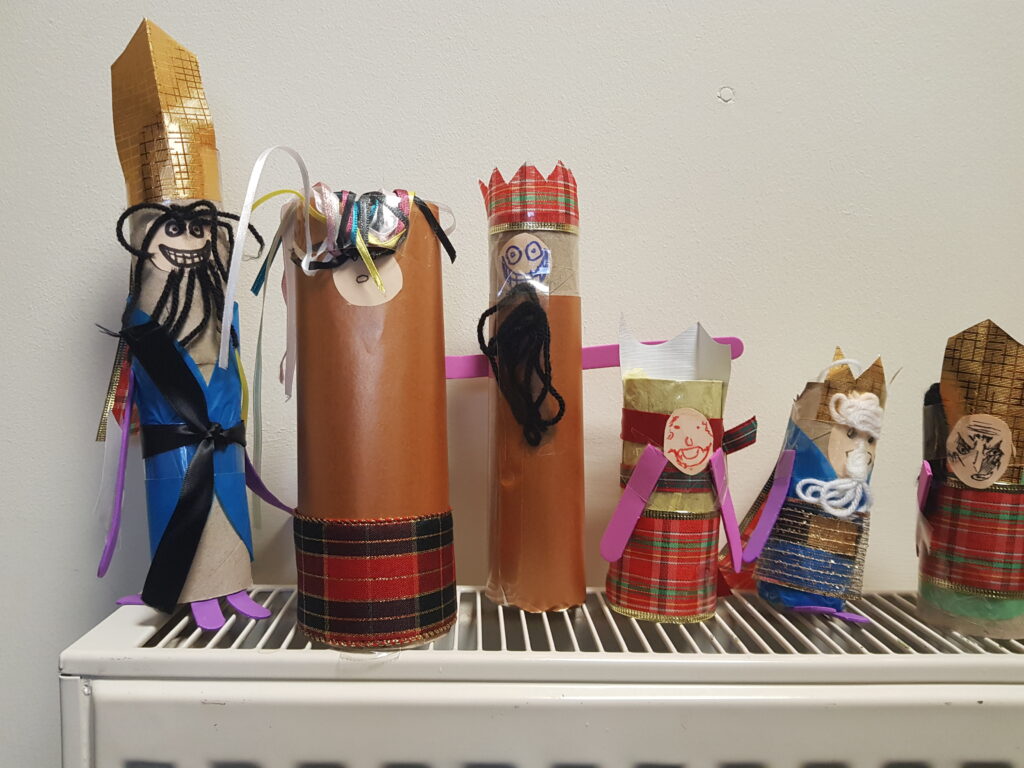
Please join us at Panmurefield Baptist Centre this Christmas to celebrate the birth of our Lord and Saviour, Jesus Christ.
Saturday 2nd December 2-4pm Christmas Messy Church
Tuesday 12th December 6.00pm Christmas Community Carol service
Sunday 17th December 1-3pm Ukrainian Christmas celebration
Sunday 24th December 10:30am All Age family service
Sunday 24th December 6:30pm Christmas Eve service
Monday 25th December 10:30am Christmas Day All Age service
